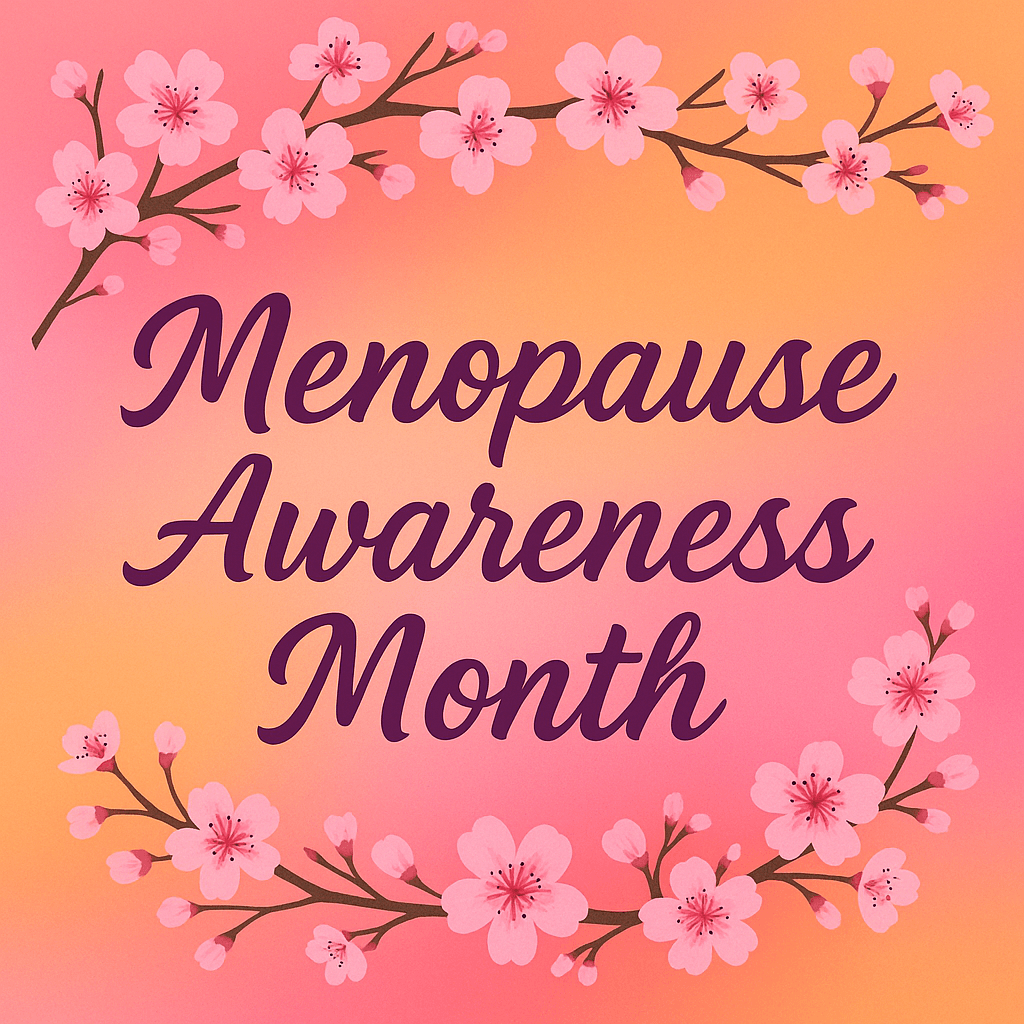🌸 October Is World Menopause Awareness Month
October marks World Menopause Awareness Month, a time to open up conversations about women’s health, challenge stigma, and explore practical ways to make life easier during perimenopause and menopause.
While awareness has improved in recent years, many women still face long waits for appointments, conflicting advice, and uncertainty over what’s really happening inside their bodies. That’s where home testing kits come in — helping women get valuable health insights from the comfort of their own homes.
🏠 What Are Home Testing Kits?
Home testing kits are designed to be easy to use and quick to interpret. They usually involve a finger-prick blood sample, a urine test, or a simple swab, depending on what you’re measuring.
Results are typically ready within minutes, helping you spot potential imbalances or issues that may be affecting your energy, mood, or overall wellbeing.
Berkeley Health has created a range of these at-home kits, clinically backed and accredited by GenM (a menopause-friendly certification). Their tests are available at Waitrose and include:
- Menopause FSH Test
- Vaginal pH Test
- Urinary Tract Infection Test
- Thyroid TSH Test
- Vitamin D Test
Each test helps women assess a different area of health that can change during menopause.
🌡️ The Menopause Test – A Helpful Starting Point, But Not the Full Picture
The Berkeley Health Menopause FSH Test measures Follicle Stimulating Hormone (FSH) levels. When oestrogen levels drop, FSH levels usually rise — so this urine test can provide an indication that menopause may have started.
However, it’s important to remember that FSH levels fluctuate, especially during perimenopause. A single reading may not provide the full picture. Some women entering menopause still have normal FSH levels, while others see spikes long before their periods stop completely.
So while this test can be a useful conversation starter, it shouldn’t be treated as a diagnosis. If you’re experiencing symptoms such as night sweats, anxiety, irregular periods or low mood, use the test results to support a discussion with your GP about HRT or other management options — rather than relying on the kit alone.
⚖️ Testing Vaginal pH and UTIs – Small Changes, Big Impact
Two of the lesser-known effects of menopause are changes in vaginal pH and an increased risk of UTIs. As oestrogen levels fall, the vaginal environment becomes less acidic, making it easier for bacteria to thrive.
The Berkeley Health Vaginal pH Test helps identify when this balance has shifted. A higher pH (more alkaline) can explain discomfort, dryness, or irritation — symptoms many women assume are just “part of menopause”.
Similarly, the Urinary Tract Infection Test can help distinguish between an actual infection and hormone-related irritation. Many women are prescribed antibiotics for UTI-like symptoms when, in fact, it’s hormonal changes that are to blame. Testing at home can help clarify whether infection is truly present, making it easier to seek the right treatment and avoid unnecessary medication.
☀️ Vitamin D and Thyroid Testing – Looking Beyond Hormones
Menopause doesn’t just affect reproductive hormones — it can also impact metabolism, bone density and energy levels.
A Vitamin D Test can reveal whether low vitamin D might be contributing to symptoms like fatigue, muscle weakness or low mood. Vitamin D deficiency becomes more common as oestrogen declines, as this hormone helps the body use vitamin D effectively.
The Thyroid TSH Test checks how well your thyroid is functioning. During menopause, thyroid disorders become more likely, and their symptoms — tiredness, weight gain, anxiety — often overlap with menopausal signs. Testing can help identify whether your thyroid might be part of the problem.
💬 What Home Testing Kits Can (and Can’t) Do
Home tests are not a replacement for medical advice, but they are a powerful tool for self-awareness and early action. They can help you:
✅ Gather evidence to take to your GP or menopause specialist
✅ Understand which symptoms might be linked to hormonal change
✅ Rule out other issues like vitamin deficiency or thyroid dysfunction
What they can’t do is provide a complete diagnosis or replace professional interpretation. However, for many women who struggle to get an appointment — or who feel their symptoms are being overlooked — home testing can be an empowering first step.
As women’s health GP Dr Janine David explains:
“These tests aren’t designed to replace your GP, but they allow women to feel more in control. They can help you understand what’s driving your symptoms and open up better conversations about treatment and lifestyle changes.”
💪 Empowerment Through Knowledge
Perimenopause and menopause can feel confusing, especially when symptoms overlap with other health issues. Having access to accurate, easy-to-use testing can help women take back control of their health — at home, in their own time, and on their own terms.
If you’ve been struggling to get help, at-home test kits can provide the clarity and confidence to push for the right support, whether that’s HRT, supplements, or further tests through your GP.
Available at Waitrose:
- Berkeley Health Menopause FSH Test
- Berkeley Health Vaginal pH Test
- Berkeley Health Urinary Tract Infection Test
- Berkeley Health Thyroid TSH Test
- Berkeley Health Vitamin D Test
Learn more at www.berkeleyhealth.com




